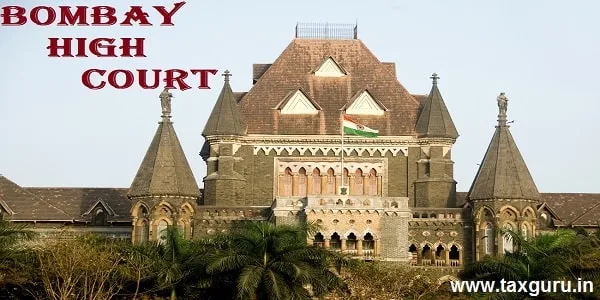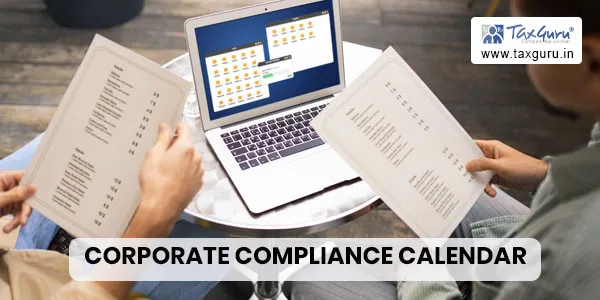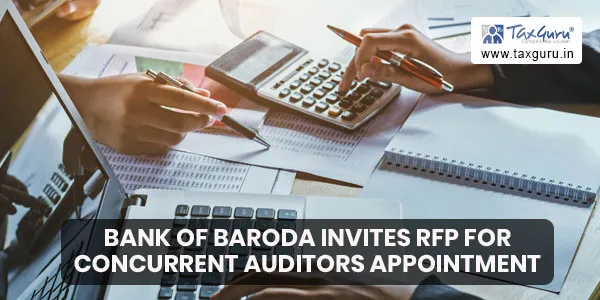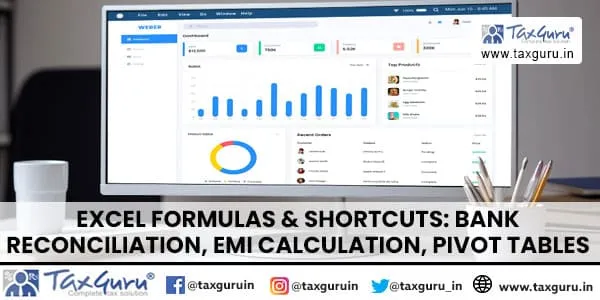Page Contents
- #1. What is implied by Annual compliance?
- #2. What are the fundamental parts of Annual compliance for the organization?
- #3. Who do the distinctive parts of Annual compliance connote?
- Review by Chartered Accountant:-
- Recording of Income Tax Returns:
- Recording of Annual ROC Returns:
- Comprehensively there are 3 principal kinds of RoC Returns:
- Statutory Registers:
#1. What is implied by Annual compliance?
According to the Companies Act 2013, each organization is a different lawful substance and expected to play out certain lawful conventions consistently, which are altogether known as Annual compliance.
#2. What are the fundamental parts of Annual compliance for the organization?
The key parts of annual compliance include:
Upkeep of books of records
The arrangement of budgetary explanations i.e. P&L a/c, Balance Sheet and Cash Flow Statement
Statutory Audit by an Independent Auditor (Qualified Chartered Accountant)
Documenting of Income Tax Return (ITR)
Documenting of ROC Returns by and large MGT-7, AOC-4, and ADT-1
Holding of 4 Board Meetings,
Holding Annual General Meeting of the organization, and
Upkeep of organization statutory enroll and minutes book.
#3. Who do the distinctive parts of Annual compliance connote?
Support of books of records: Company is required to get ready books of records relating to their money-related exchanges for the total budgetary year.
These incorporate all vouchers, legitimate deeds, registers, money books and different tributes identified with the exchanges of the organization.
The result of non-compliance:
There are penalties in two distinct laws
Companies Act, 2013
Overseeing Director, Whole Time Director, Chief Financial Officer of the organization might be culpable with detainment for a term which may reach out to one year or with fine which should not be not as much as INR 50,000/ – to INR 5,00,000/ – or both.
Income Tax Act, 1961
As per section 271A of Income Tax Act, Failure to keep up books of records and different reports or to hold them as required u/s 44AA pulls in the punishment of Rs. 25,000 u/s 271A.
The arrangement of budgetary explanations: Directors of Private Limited Company should outfit their monetary proclamations relating to their money-related position toward the finish of the financial year.
These incorporate:-
Articulation of Profit and Loss
Balance sheet i.e. explanation of liabilities and assets.
Cashflow Statement (CFS)
Result of noncompliance: Under the area 129 of Companies Act, if an organization neglects to get its books of records inspected, the MD, CFO or some other individual accused of obligation of this compliance, alongside the executives are culpable with a prison term up to 1 year or a punishment that extends from INR 50,000 to 5 Lakh or both.
Review by Chartered Accountant:-
It is required for all organizations to direct a review of all its monetary proclamations by a qualified outer examiner.
An outcome of non-compliance:
The organization might be liable for fine which should not be not as much as INR 25,000/ – but rather which may reach out to INR 5 Lakh and each officer of the organization who is in default should be culpable with detainment for a term which may stretch out to one year or with fine which should not be under ten thousand rupees but rather which may reach out to one lakh rupees, or with both.
Further according to salary charge if an organization is subject to Tax Audit and neglect to do as such:-
U/s 271B of Income Tax Act, inability to lead a duty review can affect in overwhelming a punishment of 0.5% of aggregate deals/turnover/net receipts or a whole of INR 1.5 lakhs, whichever is lesser.
Recording of Income Tax Returns:
Every one of the organizations enrolled under the Companies Act 2013 are subject to pay Income Tax on assessable salary earned and should record the Income Tax Returns most recent by 30th September of consistently.
A result of noncompliance: U/s 234F of Income Tax Act, inability to record ITR on time will pull in a fine of INR 5000/ –
In the event that pays government form not recorded prior to 31st December at that point fine will be an increment to INR 10,000/ –
Holding Company Annual General Meeting: Under the area 96 of Companies Act, the organization must hold one general meet of every one of its chiefs and investors once in a year, which is known as the Annual General Meeting or AGM.
The AGM* must be held inside a half year from the last date of the monetary year i.e. 31st March.
For Financial Year 2017-18, the last date of AGM is 30th September 2018.
*1st AGM of the organization must be held within 9 months from the last date of organization’s first budgetary year i.e.31st March.
The hole between 2 back to back AGMs must not be over 15 months.
AGM must be held amid business hours, i.e. between 9am-6pm.
A result of noncompliance: if there should arise an occurrence of any default in holding of AGM, the Tribunal has the power under segment 97 and 98 to call the AGM and give its headings in regards to holding of AGM. That being said, if the default proceeds with, at that point under area 99, the organization and each officer who is the defaulter, is obligated for a punishment of INR 5,000 every day till such default proceeds. This may stretch out up to INR 1 lakh.
Recording of Annual ROC Returns:
As an essential compliance to every one of the organizations should document the reviewed money related proclamations with the Registrar of Companies (RoC).
Comprehensively there are 3 principal kinds of RoC Returns:
1-MGT-7:
In this arrival, an organization needs to record organization’s acting like a change in shareholding, etc. Shape MGT-7 should be recorded within 60 days of holding the Annual General Meeting.
| Period of delays | Additional Fee |
| Up to 30 days | 2 times of normal fees |
| More than 30 days and up to 60 days | 4 times of normal fees |
| More than 60 days and up to 90 days | 6 times of normal fees |
| More than 90 days and up to 180 days | 10 times of normal fees |
| More than 180 days | 12 times of normal fees |
2- AOC-4:
Under this frame, each organization needs to record its evaluated accounting report alongside proclamation of Profit and Loss and Director’s Report with ROC within 30 days of holding the Annual General Meeting.
| Period of delays | Additional Fee |
| Up to 30 days | 2 times of normal fees |
| More than 30 days and up to 60 days | 4 times of normal fees |
| More than 60 days and up to 90 days | 6 times of normal fees |
| More than 90 days and up to 180 days | 10 times of normal fees |
| More than 180 days | 12 times of normal fees |
3- ADT-1:
Under this frame, each organization needs to document arrangement of a statutory reviewer with ROC within 15 days of holding the Annual General Meeting.
| Period of delays | Additional Fee |
| Up to 30 days | 2 times of normal fees |
| More than 30 days and up to 60 days | 4 times of normal fees |
| More than 60 days and up to 90 days | 6 times of normal fees |
| More than 90 days and up to 180 days | 10 times of normal fees |
| More than 180 days | 12 times of normal fees |
According to the Companies Act, chiefs of an organization are required to hold the Board meetings takes after:-
In the first place meeting of the top managerial staff inside 30 days of its joining, and from that point
Hold no less than 4 executive meetings in a year.
Besides, the hole between 2 progressive Board meetings ought to be not over 120 days.
Interest of the executives in the meeting might be either face to face or by means of VC (Video Conferencing).
Minutes need to plan of each Board meeting held.
Some essential rules with respect to this compliance are given beneath:
In the event that load up meeting is led by means of VC, procedures of the meeting must be recorded and put away alongside date and time.
The Board meeting ought to be held by pulling out at least 7 days in keeping in touch with a chief.
The majority of an executive meeting, i.e. least number of individuals to make the procedures of that meeting substantial; should ⅓ of the aggregate quality or 2 executives, whichever is higher.
An outcome of resistance: Under the segment 173 of Companies Act, if the officer whose obligation is to inform chiefs with respect to such meeting neglects to do as such, he will be subject for a punishment of INR 25,000.
Statutory Registers:
Every organization should keep up certain official and money related records as Statutory Registers.
The diverse kinds of Statutory Registers are as per the followings:-
a) Register of Share Certificates
b) Register of Sweat Equity Shares
c) Register of Charges and Instrument of Charges
d) Register of purchased back offers
e) Register of Deposits Shares Register of Members
f) Register of some other Security Holders.
g) Register of Debenture-holders.
h) Index of Members
I) Copies of Annual Returns
j) Minute Books of Board of Directors and Committees of the Board Attendance Registers for a meeting of Board and according to Secretarial Standards SS-1.
k) Minutes Books of General Meetings and Creditors Meetings – according to Companies (Management and Administration) Rules, 2014.
l) Books of records, important books and papers, budgetary proclamations and others.
m) Register of chiefs and key administrative faculty including subtle elements of securities held by them – according to Companies Rules, 2014.
n) Register of advances/ensure/security and speculations
o) Register of interest in offers or securities not held for the sake of the organization.
p) Register of Contracts, with Directors, Companies, and Firms in which Directors are intrigued.
q) Contracts went into by the organization for the arrangement of a Manager or Managing Director.
Result of resistance: Failure to keep up the previously mentioned Statutory Registers can draw in a punishment of INR 1 lakh which may expand up to 10 lakh. Further, the officer in default is subject to a punishment of INR 25 thousand to 1 lakh or a correctional facility term of a half year or both.
These are the key components of Annual compliance of a Private Limited organization.





















